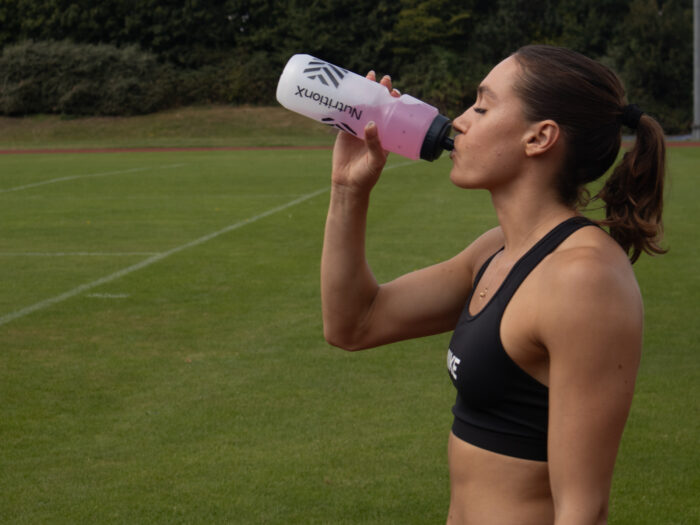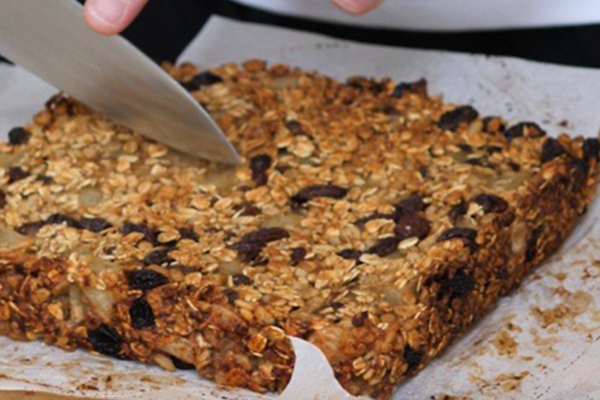Carbohydrates often suffer at the hands of a negative reputation when it comes to their impact on the body; but is this reputation fair? Here, we take a look at the different types of carbohydrates, their impact on the body and why athletes of all disciplines should be integrating them into a well-rounded nutrition strategy.
For a more in-depth look at the science behind Carbohydrates and Exercise, check out our X-Change paper on Carbohydrate Intake During Exercise here.
Are there different types of carbohydrates?
Carbohydrates can typically be classified into three main types: sugars, starches and fibre. Each has a slightly different impact on the body. Whilst sugars and starches are broken down by the body into glucose, which the body can then use for energy, fibre isn’t able to be fully digested by the body. Instead, it plays a vital role in supporting digestive health and maintaining blood sugar levels.
What are the different types of carbohydrates?
‘Sugars’, also known as simple carbohydrates, are the most basic form of carbohydrate; digested quickly to provide a burst of energy to the bloodstream. These are commonly found in the likes of white bread, white pasta, fruit and refined cereals. ‘Starches’ are otherwise known as complex carbs, and are slower to digest by the body, providing a slower release of energy; helping you feel fuller for longer. Good examples of complex carbs include vegetables (i.e. Sweet potato, parsnip, squash), legumes and whole grains, including brown rice, pasta and oats. Fibre can be found in two forms - soluble and insoluble - and helps to support digestion in the body and manage blood sugar levels. Fibre can be found in whole grains, fruits, vegetables and legumes.

Is there such a thing as bad carbohydrates?
Whilst there is no such thing as a ‘bad’ carbohydrate, the quality and type of carbohydrate can make a difference when it comes to how it’s processed by the body. Sugars are quickly digested by the body, leading to a quick ‘spike’ in energy and often lack the more rounded nutrient profiles of their counterparts. Starches and fibre, on the other hand, are slower to digest and therefore offer a slower, more steady release in energy, helping you to feel fuller for longer. Complex carbohydrates such as whole grains, vegetables and legumes also offer additional nutrients and vitamins, whilst fibre can support healthy digestive function in the body.
What do athletes need carbohydrates for?
Carbohydrates are a vital component of an athlete’s nutritional strategy thanks to their role as the primary source of energy in the body, especially for long duration and high-intensity exercise. When consumed, carbohydrates break down into glucose, which is then absorbed into the bloodstream and transported to be used as energy throughout the body. The body transforms extra glucose into liver and muscle glycogen storage to be used as energy later. During exercise, the body taps into these glycogen stores to fuel activity. For athletes, having adequate glycogen levels before exercise is key to sustaining performance and delaying fatigue. Without sufficient carbohydrate intake, athletes may experience reduced stamina, impaired strength and slower recovery times. Additionally, carbohydrates help in reducing the feeling of fatigue during exercise and maintaining mental focus and reaction time. For optimal performance, athletes need to consume enough carbohydrates to match their training intensity and duration.

What types of carbohydrates should athletes take?
For athletes, the focus should be on consuming complex carbohydrates such as whole grains, brown rice, oats and starchy vegetables on a daily basis. Not only do these carbs offer a better nutritional profile than their sugary counterparts, but offer a slow and steady release of energy in the body, keeping athletes performing at their desired intensity for longer. However, simple carbohydrates, like those found in fruits or sports drinks, can be used strategically for quick bursts of energy to delay fatigue during exercise; such as at half-time, or for endurance sessions lasting more than 60 minutes. Fast-acting carbohydrate drinks such as The Carb Shot are ideal, providing rapid-availability glucose for the muscles and brain.
What are the best carbohydrate supplements?

A healthy, balanced diet, rich in complex carbohydrates and fibre is the ultimate to aim for when it comes to ensuring carbohydrates play an effective role in your nutrition strategy as an athlete. However, on certain occasions, such as during prolonged exercise, match-play or competition, carbohydrate supplements can be an effective means of replenishing muscle glycogen stores quickly; delaying the onset of fatigue and the negative impact on performance that it can bring after the 60-minute mark. Carbohydrate supplements can also boost mental alertness and stamina, helping athletes keep the ‘edge’ in their performance. Carbohydrate supplements ideal for athletes include carbohydrate gels such as Energel+, energy drinks and carbohydrate shots such as The Carb Shot.
When should athletes take carbohydrate supplements?
Research has shown that consuming carbohydrates before, during and after exercise can be beneficial to athletic performance. Before exercise, consuming carbohydrates helps to build muscle glycogen stores, giving your muscles the energy stores they need to perform from the off. During exercise lasting longer than 60 minutes, carbohydrate supplements can be taken to maintain energy levels and prevent fatigue. After exercise, consuming carbohydrates in the form of whole foods or supplements can help to replenish depleted glycogen stores in the body, aiding muscle recovery.
Check out our range of Informed-Sport accredited carbohydrate supplements here.








